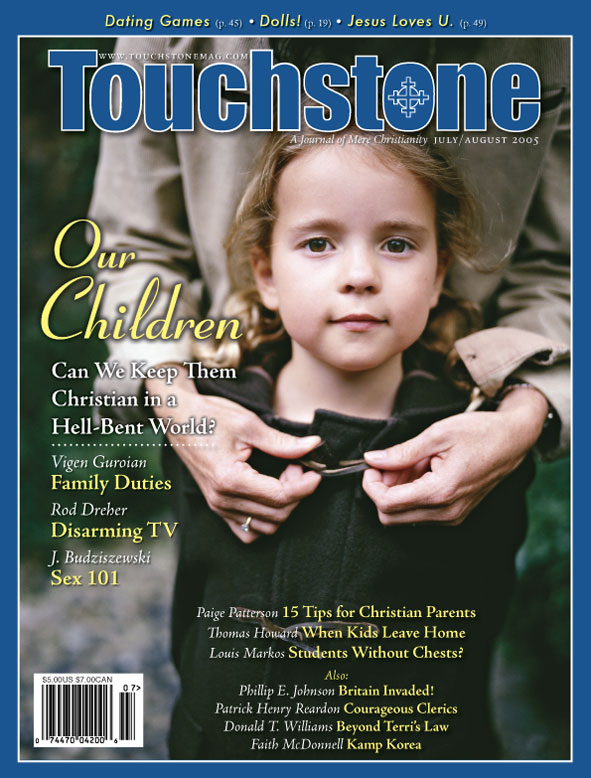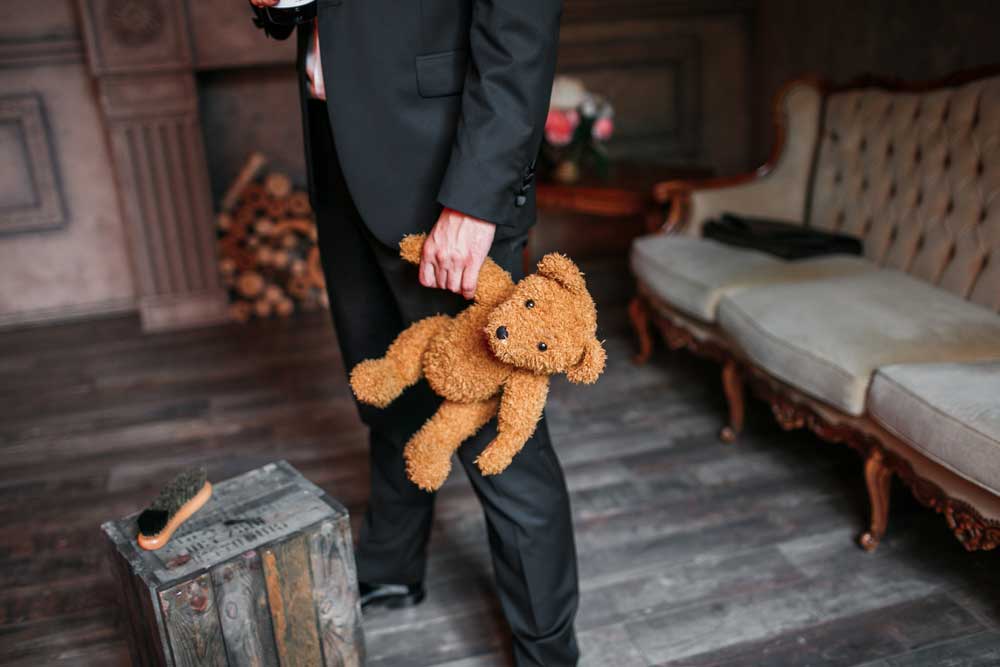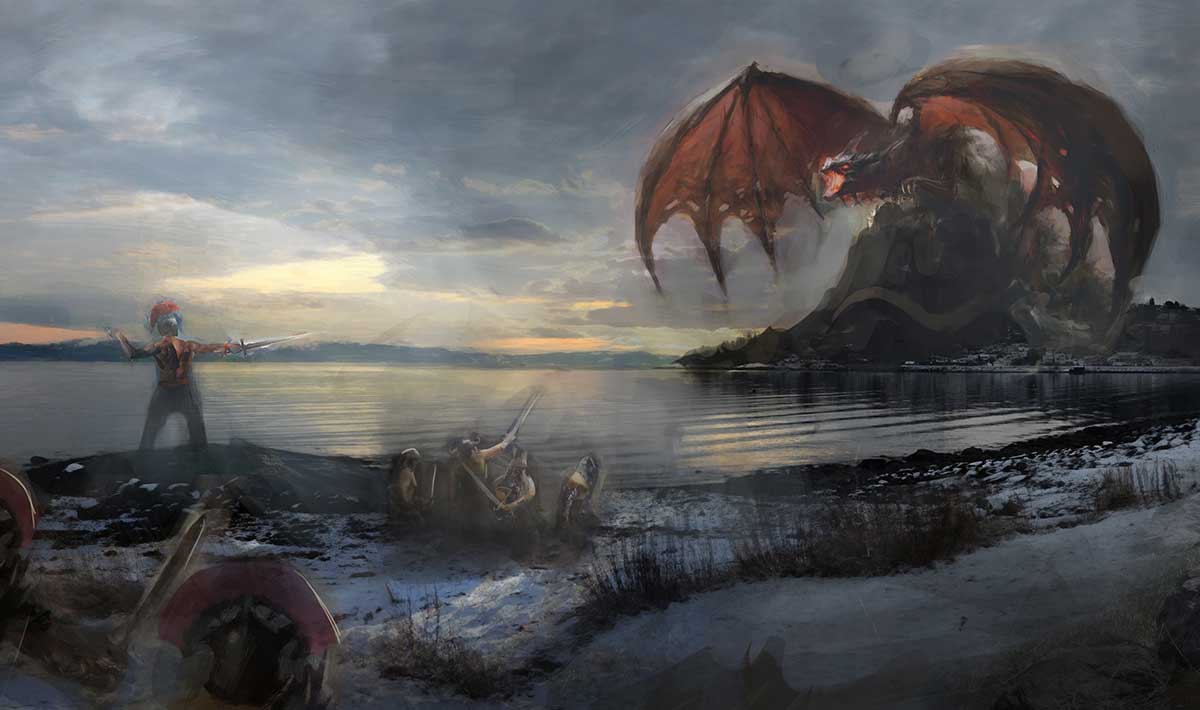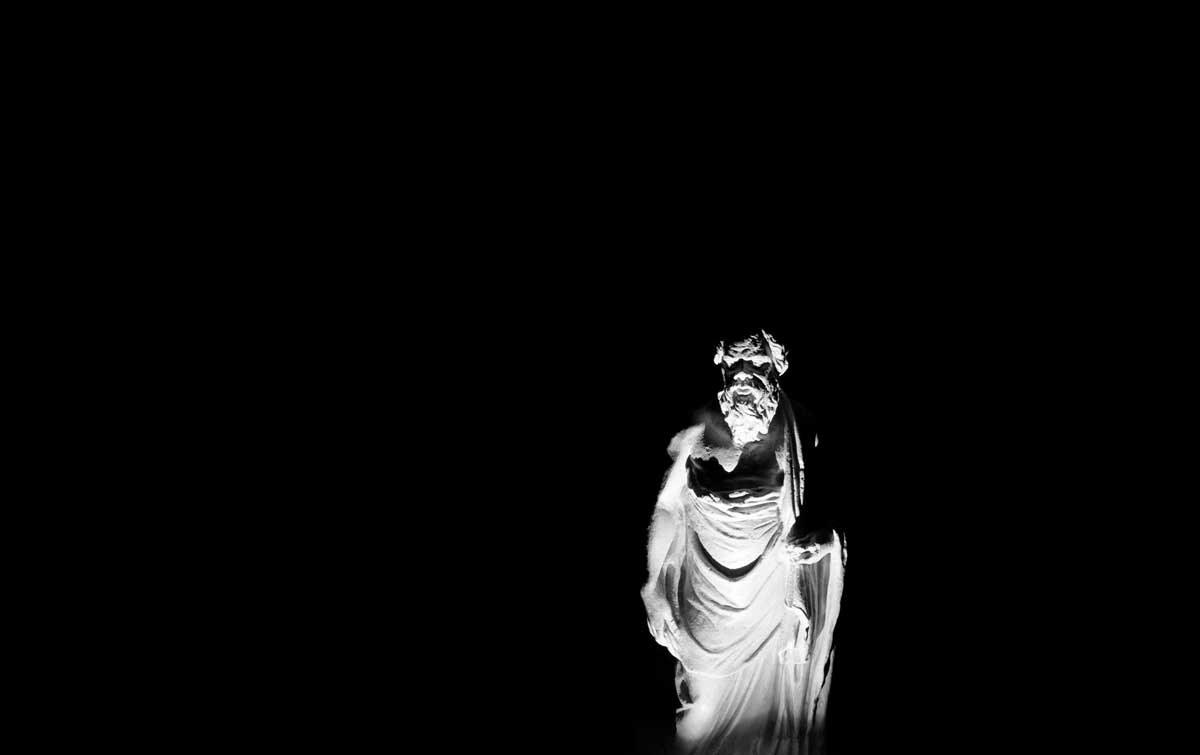View
Excluded Middle School
Louis Markos on Why C. S. Lewis Was Right About Chests
Though public education in the United States has not fully abandoned the concept of ethics and morality, it has quite clearly abandoned what C. S. Lewis dubbed the Tao. As Lewis explained it in The Abolition of Man, the Tao is the universal moral law code known and understood by all peoples at all times through the dual media of natural reason and divinely revealed law codes. Although the Tao has always played a central role in the education of the young, modern Western educators have, in defiance of both our Greco-Roman and our Judeo-Christian heritage, rejected it as the basis for education.
This rejection they have justified on at least three grounds: “scientific” (modern education is to rest on logic, reason, and empirical evidence, not on anything “subjective” and “private”), sociological-anthropological (what we in the West call morality is not universal but culture-specific), and political (a “religious” concept like the Tao has no place in public, state-run education). Even when traditional morality is taught in the classroom, it is not linked to the Tao, but treated as a personal choice that cannot be granted the universal status given to, say, the numerical value of pi or the scientific theory of evolution.
By rejecting the Tao, the educational system has courted disaster. Borrowing a metaphor from Plato, Lewis argued in The Abolition of Man that in all human beings there exists a perpetual war between the head (reason) and the belly (appetite). Through the head we are drawn up toward the angels, and through the belly we are drawn down toward the beasts. In a straight fight between the two, the belly will win every time.
Luckily, however, the head is aided by the chest, which is the seat “of Magnanimity, of emotions organized by trained habit into stable sentiments.” As Lewis put it: “The Chest—Magnanimity—Sentiment—these are the indispensable liaison officers between cerebral man and visceral man. It may even be said that it is by this middle element that man is man: for by his intellect he is mere spirit and by his appetite mere animal.”
Without the chest, the head is easy prey for the belly; in the absence of the Tao, we cease to be human beings at all. Modern education, by debunking the real, objective status of Tao-based virtues (as opposed to man-made, culture-specific values), leaves the chest to shrivel, producing, in his famous phrase, “men without chests.”
It is not enough to teach young students knowledge of the Tao. In addition to learning how to distinguish virtuous behavior from vicious behavior, the student must be taught how he is to feel about virtue and vice. The student must be trained from a young age to feel good when he performs a virtuous action and to feel a sense of internal disgust (but not self-hatred) when he does something vicious.
As fallen creatures to whom sin, pride, and disobedience come naturally, our emotions must be trained along with our minds and souls. By such means is the chest strengthened and expanded.
Education in the West tends to shrivel the chest in three ways: (1) by killing the imagination in the name of reason and logic; (2) by asserting pure ethical relativism; and (3) by removing that vital feeling of disgust that should and must accompany breaches of the Tao. Not surprisingly, much great literature identifies the natural, causal link between values-free education and the loss of the chest, and we see these three ways illustrated in Charles Dickens’s Hard Times, Aristophanes’ Clouds, and Dante’s Inferno.
Shriveling the Chest
The first manifestation is a uniquely modern one. In a fit of prophetic passion not far removed from that which drove Lewis to write The Abolition of Man, Charles Dickens produced a short novel that was really a parable in disguise. Hard Times (1845) tells the unsettling tale of a modern, well-intentioned father, Thomas Gradgrind, who, by educating his children in a Tao-less vacuum that exalts facts above all else, produces a pair of human monsters.
Totally unschooled in the affairs of the heart and of the proper feelings associated with love and marriage, his daughter Louisa first marries an aged, “filthy-capitalist” banker whom she does not love and who crushes what little spirit she has, and then, overpowered by passions she cannot understand, runs off with an amoral rake who uses and abandons her. She ends up an empty shell of a woman, a living indictment of her father’s faulty theories of education.
Gradgrind’s son Tom, bereft of any internal sense of moral and ethical behavior, becomes a thief and a scoundrel who frames an innocent and godly worker and then justifies his crimes to his father in the name of the scientific, utilitarian “values” he had been taught. As if to drive home the cause-and-effect theme of his novel (namely, that men without chests will be incapable of virtue, honor, and love), Dickens titles the three sections of his novel Sowing, Reaping, and Garnering.
A proper schooling in the Tao calls not only for the instilling of virtues, but also for the ordering of those virtues. Gradgrind’s modern, “scientific” education has left out the most vital part, the part that makes us the most human and that brings us the most joy. The things taught in his utilitarian classroom are all things that can be taken away; that which is most lasting and valuable is simply ignored. Such education focuses on the temporal and fleeting at the expense of the durable and perennial.
Unfortunately, the would-be restorer of the Tao to our modern educational system must contend with far more than this devaluing of imagination, sentiment, and the classical virtues. The anti-Tao stance of modern Western education also manifests itself in a simple dismissal of all set standards, a very old impulse that can be traced back to the Sophists of the fifth century B.C., itinerant teachers who, for a price, would teach their pupils the arts of rhetoric and logic by which they could learn to make the weaker argument the stronger. (They were also, incidentally, the first cultural and ethical relativists, who taught that morality shifted from one Greek polis to the next.)
The great Greek comic playwright Aristophanes was an arch-enemy of the Sophists and saw full well the danger their educational theories posed to the polis. To illustrate the dangers of a sophistical, values-free education and to show that we reap what we sow, Aristophanes wrote a brilliant comedy that is as parable-like in its form as Hard Times. In the play Clouds, Strepsiades, a father with grand designs for his progeny, sends his son Pheidippides to the school of the Sophists to learn how to make the weaker argument the stronger.
His reasons for doing so are purely practical. He is in debt, and he wishes to find a way to relieve himself of the burden of paying off his creditors. At first, he goes himself to the school of the Sophists, but he is too old and slow-witted to learn their wisdom. With much effort, he persuades Pheidippides to go in his place, and, in the second half of the play, he gets his debts cancelled by making use of the relativistic logic of sophistry.
Unfortunately for the triumphant father, the play does not end there. In the closing scene, Strepsiades and his son get into a debate, and Pheidippides strikes his father. When Strepsiades balks at this treatment and appeals to his son to heed the laws of the polis and of piety, Pheidippides uses his new-learned “logic” to show his father why he is, in fact, committing a proper action in beating (literally) his own father. Repeating what both he and his father had learned from the Sophists, Pheidippides argues that the laws of the state are merely man-made and can therefore be changed, and that, as far as piety goes, there really is no such person as Zeus.
Gruesome Feelings
Hard Times and Clouds both focus specifically on schools that educate their young charges in accordance with a faulty and destructive pedagogy. The thirtieth canto of Dante’s Inferno, though it is not presented in terms of a school, exposes powerfully what awaits a society that not only debunks the Tao but fails to instill in its youth the proper feelings that we should associate with virtuous and vicious behavior.
In this truly gruesome canto, Virgil and Dante make their way through the final bolgia (or pit) of level eight, which houses for eternity the falsifiers. Here they meet
Sinon (who deceived the Trojans into accepting the Wooden Horse) and Master Adam (a notorious counterfeiter of Dante’s day). As Dante looks on, Sinon and Master Adam become embroiled in a nasty debate. Neither feels any shame in recounting the indecencies of his crimes and punishments.
Dante slowly becomes mesmerized by their petty quarrel and (like a modern American watching two amoral antagonists hash it out on The Jerry Springer Show) finds himself hanging on their every word. When Virgil realizes that Dante will continue to listen unless he is shaken out of his stupor, he scolds him sharply and tells him that his desire to listen to such base and unedifying speech is itself degrading. Dante immediately blushes and asks forgiveness, and Virgil tells him that the very shame he feels is sufficient to erase his offense.
Surely there is nothing wrong with watching such a display, protests the typical American, but there is. To listen, to absorb, perhaps to enjoy such petty and degrading speech is to dull and finally suspend what has come to be known as our “sense of outrage” (that is to say, that sense of disgust we should feel when the Tao is violated). Too often today, public education invites its pupils to witness, like Dante, the Jerry Springer Show of Hell.
Before the impressionable eyes and ears of children and teens, classical virtues are dismissed, scorned, and even ridiculed, all in the name of tolerance, egalitarianism, and (God preserve us) the separation of church and state. Well, that’s just human nature, we are trained to think; there’s nothing really wrong with it, and it’s not something that we should really feel ashamed about. But, of course, that is the very problem. We should feel ashamed.
We are told constantly that today’s teens are wilder than those of the 1950s, but that is not really true. Some young people have always, lacking wisdom, been wild. Today, more and more, the teen performs his rebellious and sinful acts in a guiltless void. As terrifying as were the actual killings that took place at Columbine High School in the 1990s, even more unsettling was what appeared to be the killers’ complete lack of remorse or sense of shame.
The chest has not only shriveled; it has completely disappeared. Virtuous sentiment has been swallowed up, and the shells of human beings that remain are left without any moral compass to guide them or ethical boundaries to protect them.
Taoist Training
Lewis, I believe, saw all these dangers, but he also knew that they would take several generations to fully manifest themselves. Society may break away from (and ridicule) the Tao, but as long as the young of that society have the Tao (and the proper feelings associated with it) instilled in them by parents and teachers, they will generally return to it. But if those children grow up and raise their children without the Tao, and those children in turn raise their own children without the Tao, then will society begin to be plagued by a generation that acts without remorse in a Tao-less vacuum.
“Train up a child in the way he should go,” Proverbs 22 tells us, “and when he is old, he will not depart from it.” This works in reverse as well: Train up a child without any sense of right and wrong as fixed and transcendent, as our educators do, and when he is old, he will depart from morality altogether. •
Louis Markos , Professor in English and Scholar in Residence at Houston Baptist University, holds the Robert H. Ray Chair in Humanities. His 19 books include Lewis Agonistes; Restoring Beauty: The Good, the True, and the Beautiful in the Writings of C. S. Lewis; On the Shoulders of Hobbits: The Road to Virtue with Tolkien and Lewis; and From A to Z to Narnia with C. S. Lewis.
subscription options
Order
Print/Online Subscription

Get six issues (one year) of Touchstone PLUS full online access including pdf downloads for only $39.95. That's only $3.34 per month!
Order
Online Only
Subscription

Get a one-year full-access subscription to the Touchstone online archives for only $19.95. That's only $1.66 per month!
bulk subscriptions
Order Touchstone subscriptions in bulk and save $10 per sub! Each subscription includes 6 issues of Touchstone plus full online access to touchstonemag.com—including archives, videos, and pdf downloads of recent issues for only $29.95 each! Great for churches or study groups.
Transactions will be processed on a secure server.
more on C. S. Lewis from the online archives
more from the online archives
calling all readers
Please Donate
"There are magazines worth reading but few worth saving . . . Touchstone is just such a magazine."
—Alice von Hildebrand
"Here we do not concede one square millimeter of territory to falsehood, folly, contemporary sentimentality, or fashion. We speak the truth, and let God be our judge. . . . Touchstone is the one committedly Christian conservative journal."
—Anthony Esolen, Touchstone senior editor













